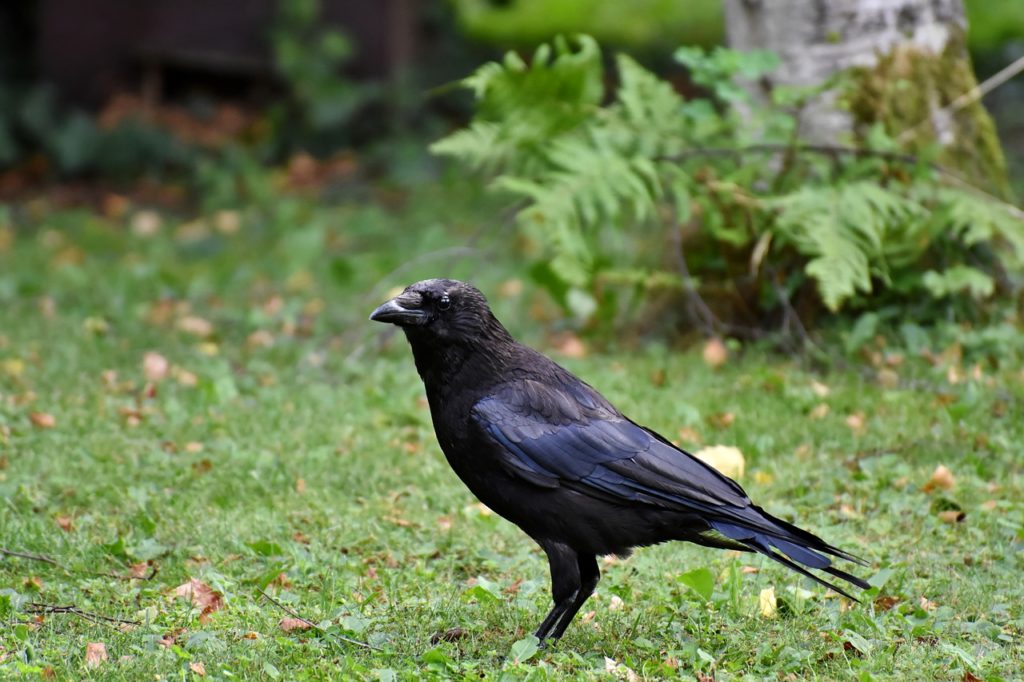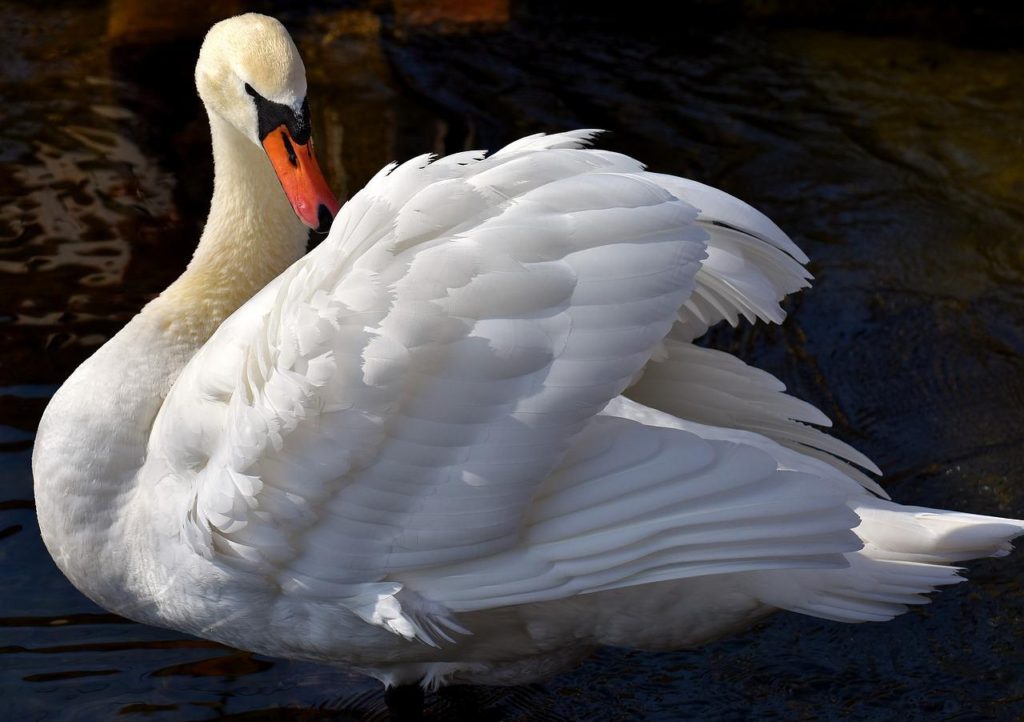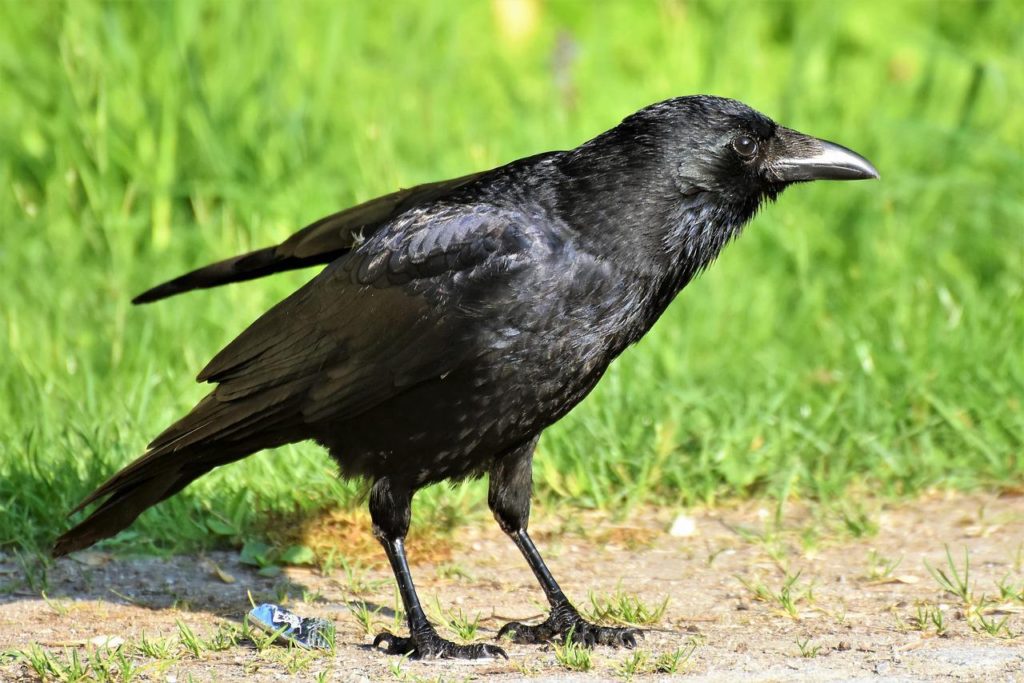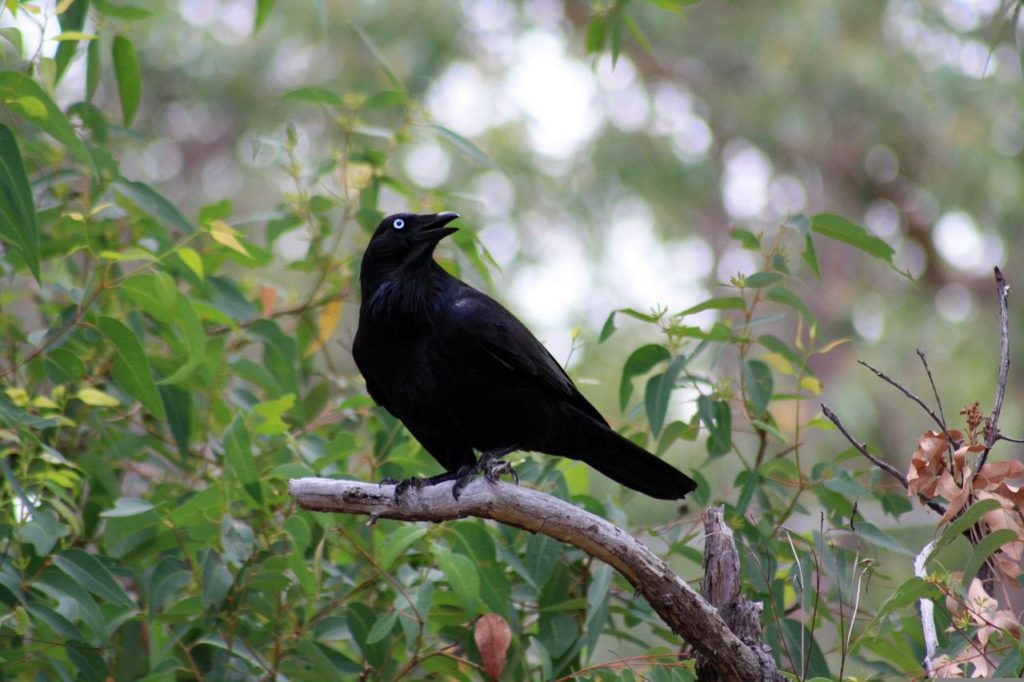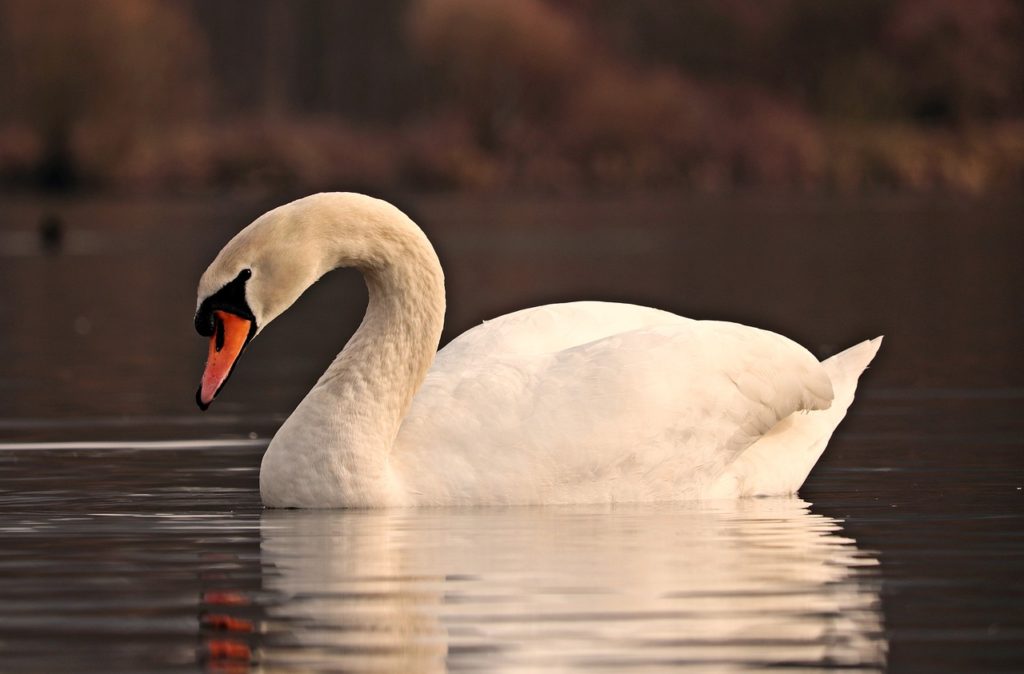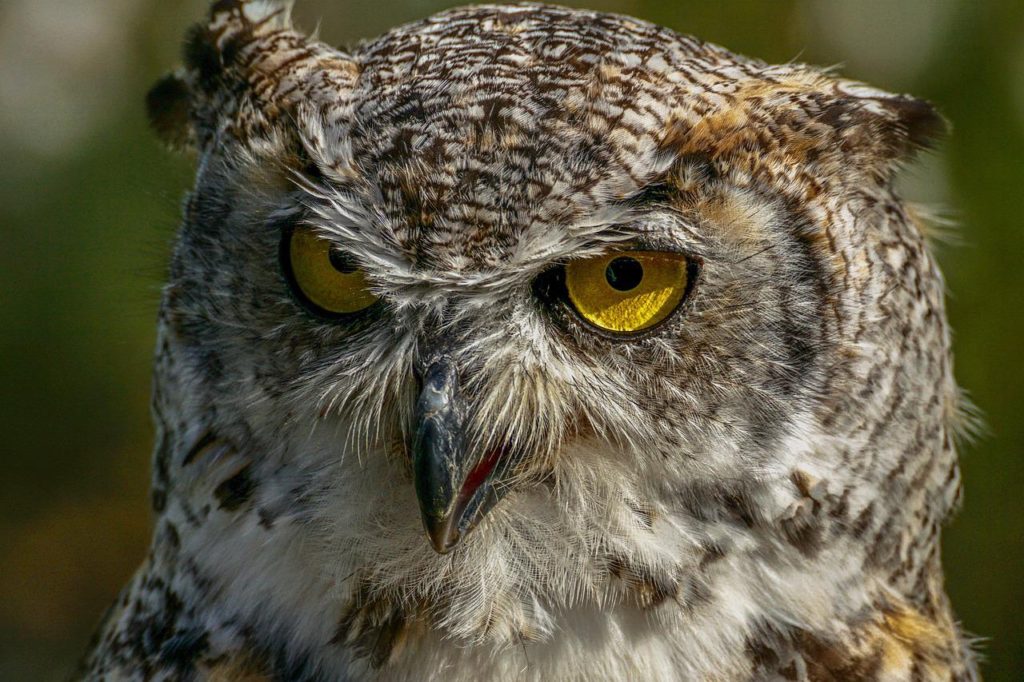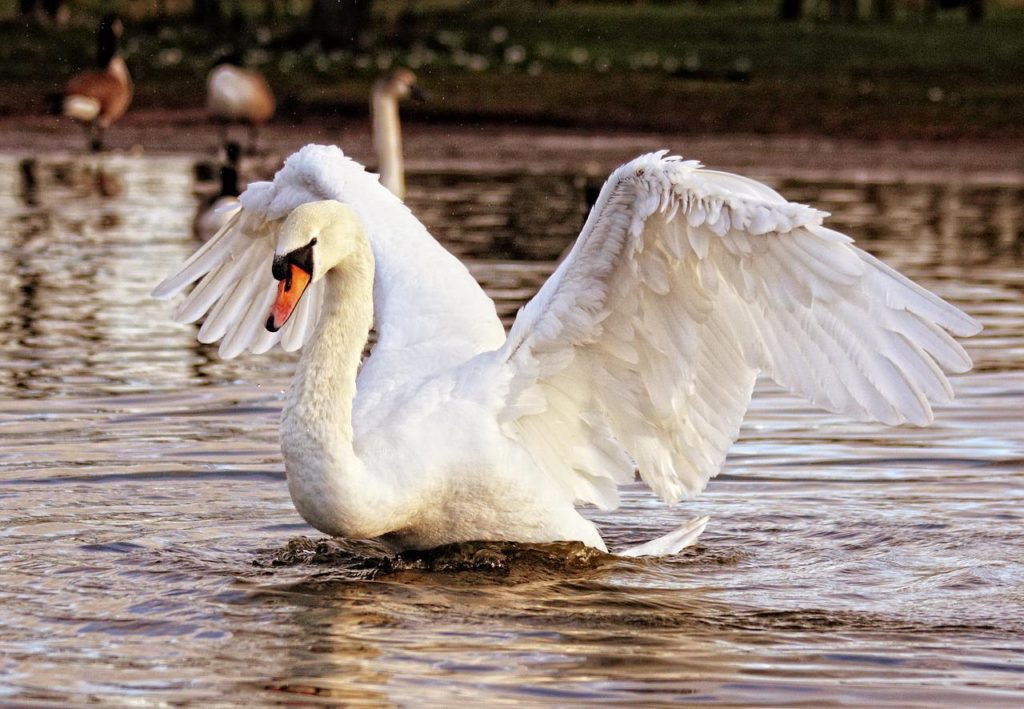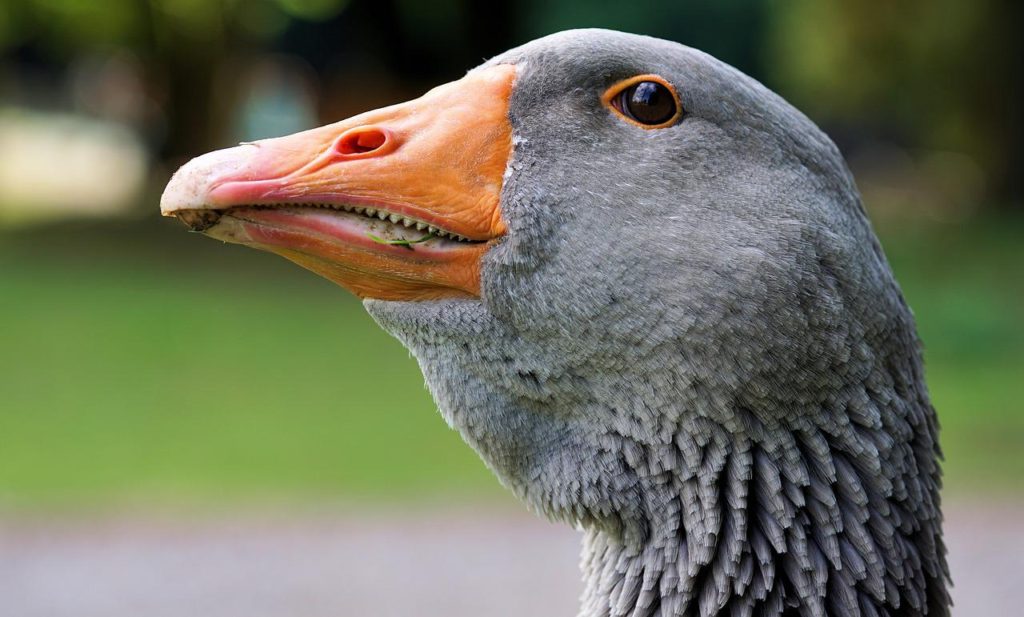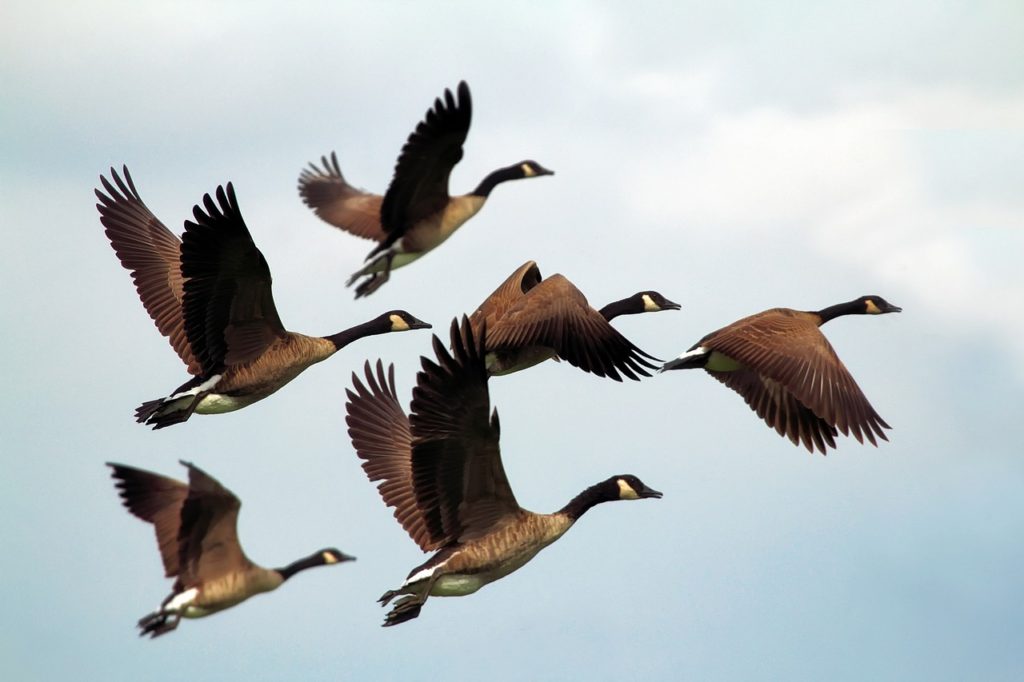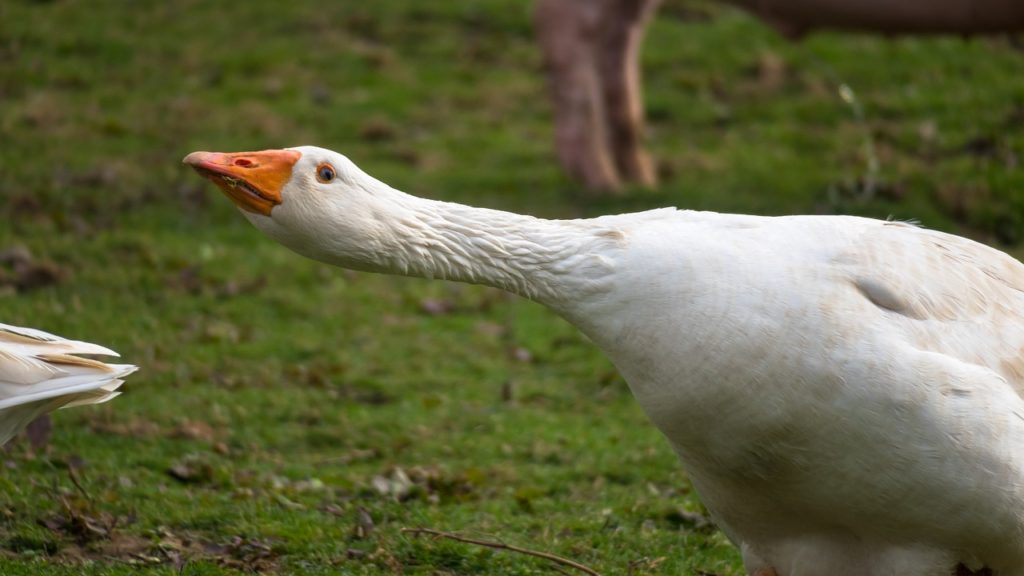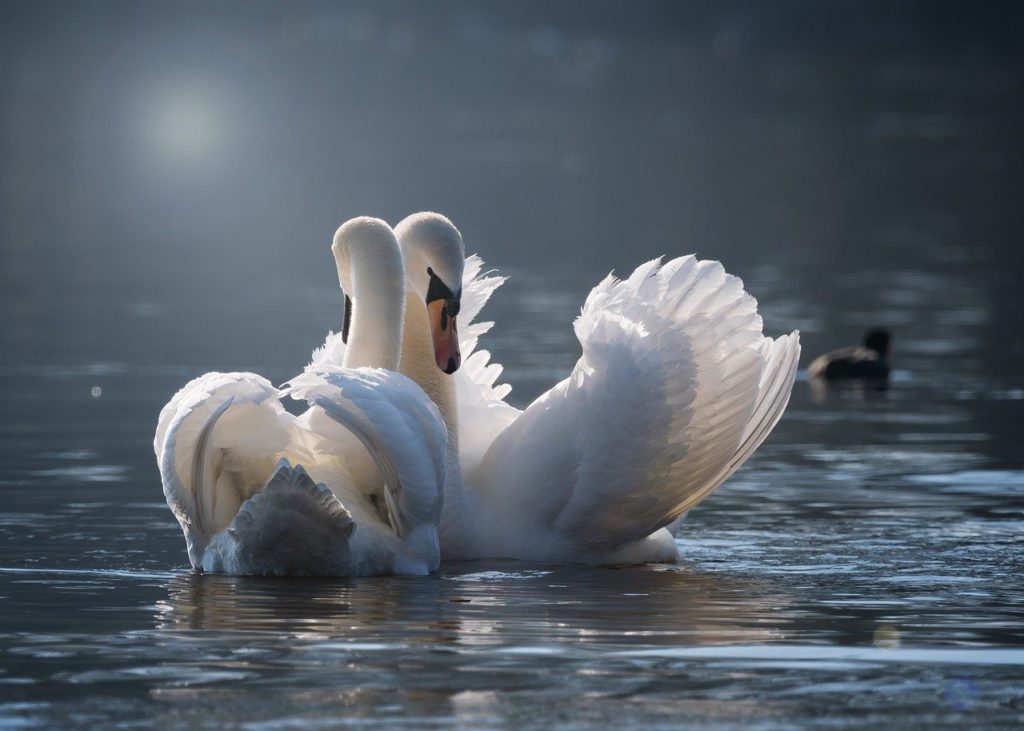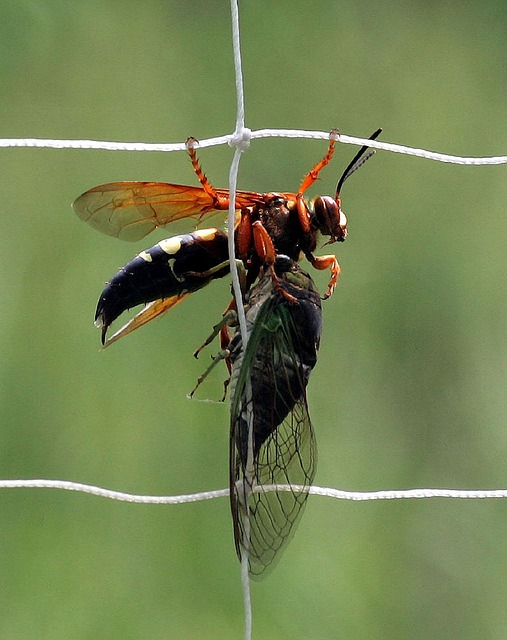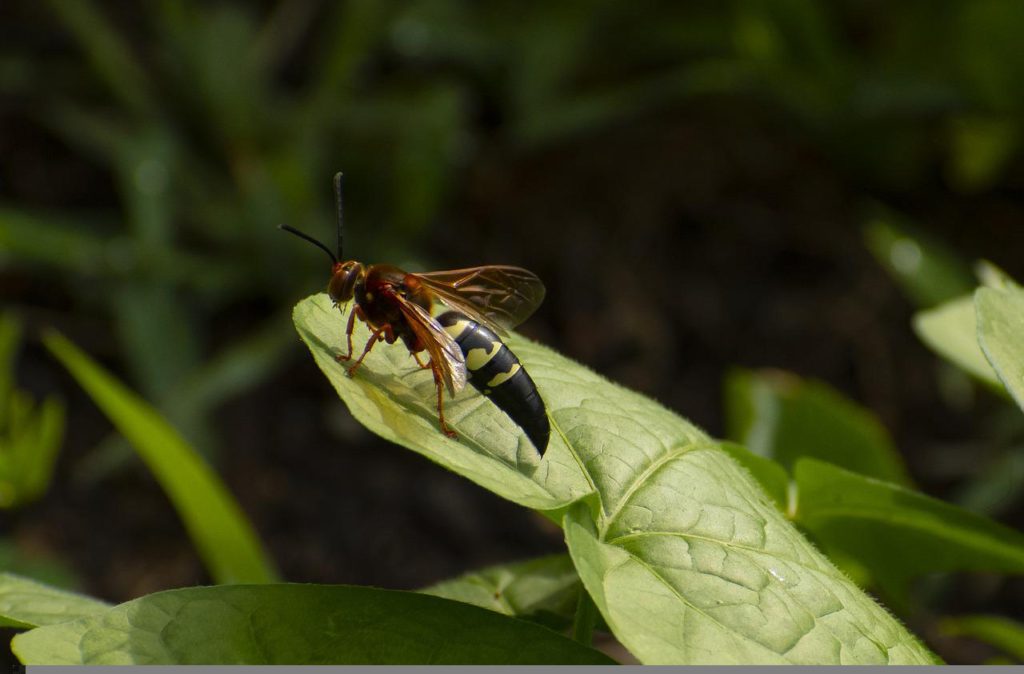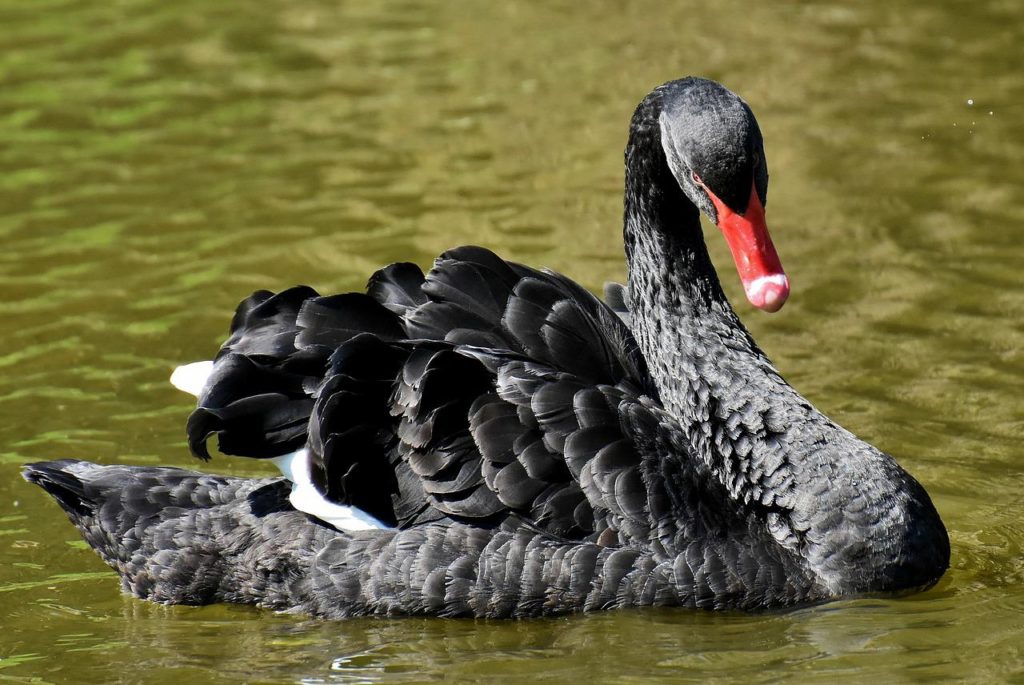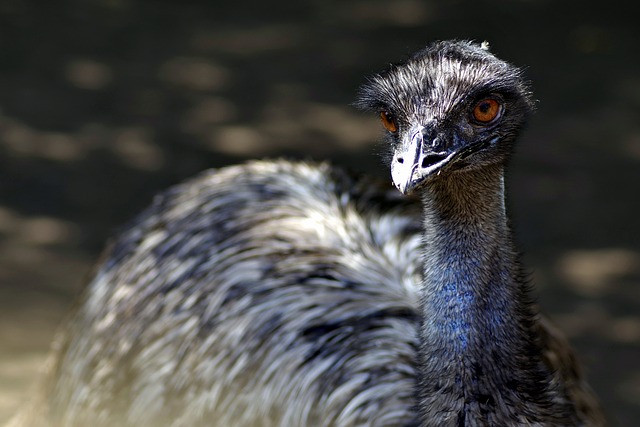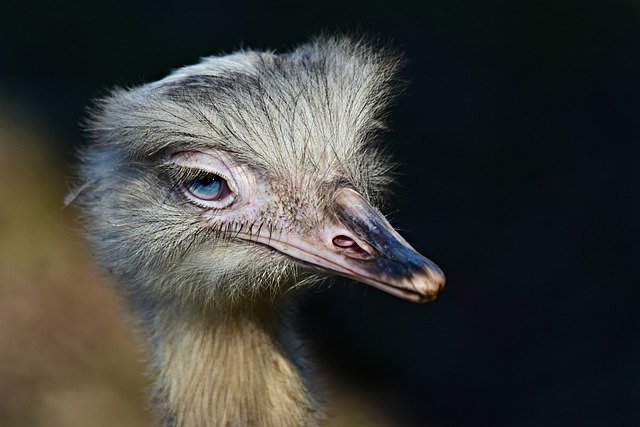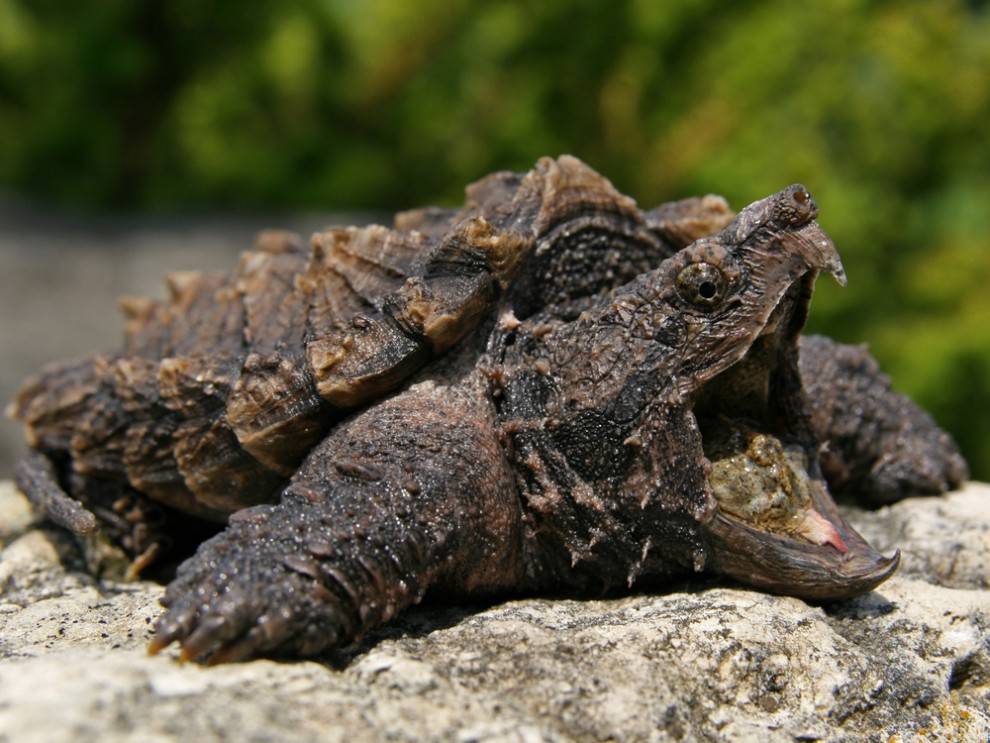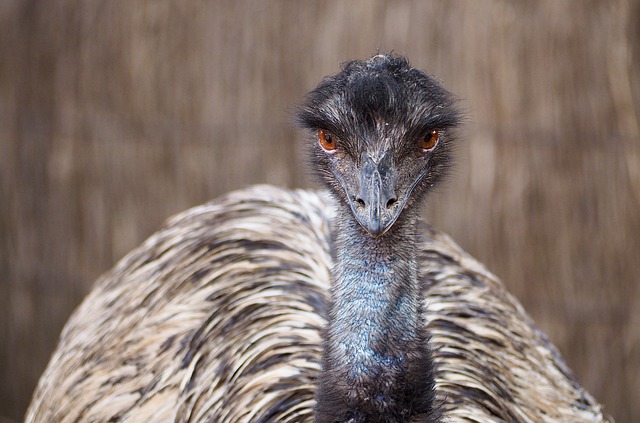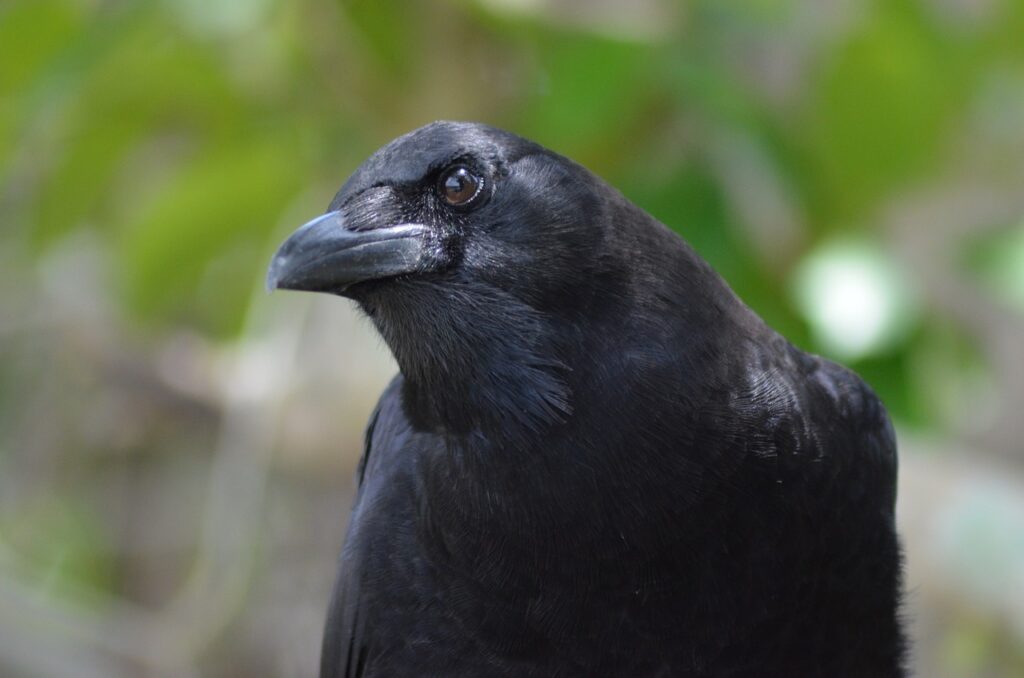
Do crows mate for life? Yes, they do. And this behavior is highly advantageous to them. Here’s what you’ll want to know.
How Do Crows Attract A Mate?
Crows are social birds; most of the year, they live in small family groups. During the breeding season, however, single male crows that have reached sexual maturity will leave the group and attempt to find a mate and establish their territories.
In addition to securing a territory, male crows will also vocalize using a range of calls and songs to impress females. Physical displays such as puffing up their feathers, bobbing their heads, and spreading their tales, along with flapping and spreading their wings, are also used to signal females.
Sometimes, males will bring food and nesting materials to an individual female to try and impress her as well. Females will decide whether or not to pair with a male based on the quality of his displays and his perceived ability to provide for her and her future offspring.
If she approves of the male crow, they will move into his male’s territory and mate. Although female crows are quite selective. If they aren’t impressed with the available males they may simply choose to wait until the following year to find one.
When Do Crows Mate?
It typically takes crows anywhere from two to four years before they are sexually mature and ready to mate. This varies from crow to crow and can also be influenced by the availability of resources in their environment. Crows have a delayed sexual maturity when compared to other types of birds.
This is believed to be an advantage for survival as it gives them time to gain experience and learn important social behaviors before going off to reproduce. The time of year that crows mate depends on where they live.
In North America, for example, the crow mating season is typically from March to May. However, in Europe, it tends to be from April to June. And in Australia, it normally runs from September to January.
Do Crows Mate For Life?
Crows do mate for life. They stay with their partner year-round and together they will forage, build a nest, mate, raise their young, and defend their territory. They will do this year after year and as a result, they form very strong bonds. Crow pairs can often be seen grooming each other.
This behavior is believed to strengthen their bond (similar to when apes and monkeys groom members of their social group). Known as allopreening, crows use their beaks to comb, probe, and pick through their mate’s feathers and remove pests such as mites and flies, along with debris.
However, there are exceptions, and sometimes crows do split up. For instance, when one of the crows can’t successfully reproduce the pair may split and each will attempt to find a new partner.
Why Do Crows Mate For Life?
Mating for life has several advantages. One of the biggest is that both parents are there to help care for and protect the young instead of only the female. This helps to increase the odds of their young surviving.
It also allows them to use their resources, such as energy, more efficiently as they can share responsibilities so that while one parent is guarding the nest, the other can be foraging for food, for example. Mating for life makes for a more powerful pair bond as the bond between the two birds grows over time, providing them emotional support.
What Do Crows Do When Their Mate Dies?
Crows are known to engage in mourning behavior around the dead crow calling loudly. This may sometimes last for several days. Because the bond between mates is vital when one dies, the remaining crow may be impacted heavily.
As the remaining crows do not have their mate to protect them or their offspring, they may adjust their behavior and compensate by becoming more aggressive and territorial. Depending on the individual crow, they may spend more time with other crows in their family group than they did before or less.
When it comes to finding a new mate, that depends on the individual crow as well. Some birds may seek a new mate rather quickly, while others may wait longer.
And some birds, often older crows that had been pair bonded for a long time, may never look to find a new mate. So while crows mate for life, there are circumstances such as the death of their partner, which may cause them to find a new mate or even stay single for the rest of their days.
Start Shopping for Birding Supplies!
What Are Crows Good For?
Crows are widely considered to be pests. However, these large and highly intelligent black birds actually serve quite a few important functions in the environment. So what are crows good for? Here's what you'll want to know. Pest And Parasite Management Crows are...
How Long Do Swans Live?
Swans are graceful and beautiful creatures and as such, people have many questions about them. They want to know about their mating rituals, their diet, their preferred habitats, and even their lifespans. How long do swans live for anyway? Swan lifespans actually vary...
Are Crows Good Pets?
People all around the world see and hear crows on a daily basis. Although these intelligent and dark birds are practically ubiquitous, most people don't think of them as being household pets. Are crows good pets? The general consensus is that crows do not make...
Are There Crows In Australia?
Crows are remarkably smart birds that also happen to be extremely adaptable. They navigate unfamiliar circumstances via observation and interaction. Crows reside in locations all over the globe. While they do not live in certain parts of South America, they do reside...
What Do Swans Eat?
Swans are famously long-necked birds that are symbols of romance, love, beauty, and purity. Since these waterbirds have so many admirers, people often wonder about their eating habits, behaviors, and more. What do swans eat, anyway? Swan Basics Swans typically live in...
Birds That Look Like Owls
Owls are typically solitary and mainly nocturnal birds. And although these well-known hooting creatures have a rather distinctive physical appearance, there are actually various other kinds of birds that resemble owls closely. And people sometimes mix them up. So...
Why Are Swans Protected?
Swans are graceful and gorgeous creatures. They also happen to have protection in the United Kingdom, interestingly enough. Why are swans protected there, anyway? And does the Queen own all the swans? Yes, she actually owns any mute swans that are unclaimed in both...
Birds With Teeth
Birds do not have teeth. However, there are quite a few that really look like they do! These birds have evolved special beaks which help them to perform important functions. So here are some of the most amazing birds with “teeth,” and what you’ll want to know about...
Do Geese Fly?
Although geese are clearly birds, there are many individuals who do not necessarily associate them with flying. So, do geese fly? The honest answer is that these waterfowl do. They do not exactly slouch in the flying department, either. Many people are pleasantly...
Are Geese Dangerous?
Geese, in brief, are waterbirds that are quite substantial in size. Since they're often spotted on golf courses, at schools, and in community parks, people understandably tend to wonder whether they're safety threats. Are geese dangerous? Why Geese Attack...
Do Swans Mate For Life?
Swans are famously elegant waterbirds that are known for their sizable bodies, webbed feet, and lengthy necks. People often associate them with romantic imagery and monogamy. Do swans mate for life? You can find the response to that common and rather fascinating...
When Do Cicada Killers Come Out?
Whether you dread them each year or are waiting for them to emerge and control the cicada population you may be wondering, “When do cicada killers come out? The answer is they come out each summer in late June or July. Here’s what you’ll want to know. Cicada Killer...
Are Cicada Killers Dangerous?
One look at one of these huge wasps buzzing around, your yard, and it’s only natural to ask, “Are cicada killers dangerous?” Fortunately, these wasps are mild-mannered. But here’s what you’ll want to know. Cicada Killer Wasps Basics Cicada killers emerge from the...
What Are Black Swans?
What are black swans? Black swans (Cygnus atratus) are sizable waterbirds. This species primarily appears in Australia's southwestern and southeastern portions. The black swan is nomadic in its homeland. This bird, true to its name, is mostly black. Although the bird...
What Do Cicada Killers Eat When There Are No Cicadas?
What do cicada killers eat when there are no cicadas? Well, while cicada killer wasps do hunt cicadas, the adults don’t actually eat them or kill them, their young do. Read on to learn more! The Cicada Killer Diet While you may have seen cicada killer wasps flying...
Do Cicada Killer Wasps Sting?
As one of the biggest species of wasp in North America the cicada killer wasp can be intimidating. And because of their size, appearance, and scary-sounding name, many people wonder, “Do cicada killer wasps sting? The answer is yes and no, and here’s what you’ll want...
Emu Facts
Did you know? One emu egg can make an omelet that can feed up to six adults. Did you know that the emu is the only bird with calf muscles? Can an emu walk backward? Let us find out by exploring some of the most jaw-dropping emu facts. Emus Have Amazingly Powerful Legs...
Rhea Facts
Doting dads, did you know the male rhea builds the nest, incubates the eggs, and takes care of the young? The rheas are paragons of parental care. It’s a bird like no other, and you will be surprised by the following rhea facts. Rheas Are One Of The Best Dads In The...
Alligator Snapping Turtle Facts
Flightless Australian Birds
There are over sixty species of flightless birds in the world. These birds have lost their capability to fly through evolution, and several of them live in the “land Down Under.” So here’s a list of all the flightless Australian birds. Emu The emu is a large...
